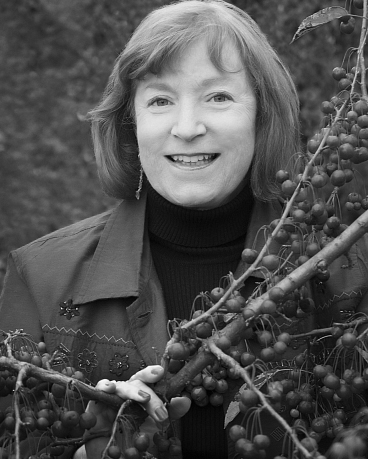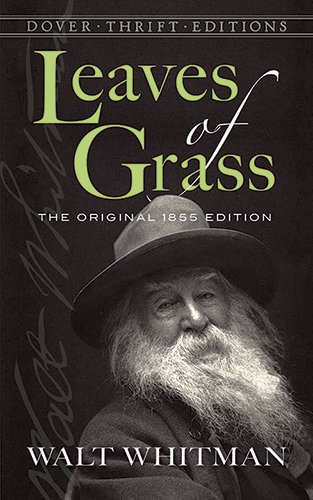Barbara Crooker on Praise
 Barbara Crooker is the author of six books of poetry: Radiance, Line Dance, More, Gold, Small Rain, and Selected Poems. She lives in rural Pennsylvania, and is the full-time caregiver of her son, who has autism. Praise is a central theme in much of her work.
Barbara Crooker is the author of six books of poetry: Radiance, Line Dance, More, Gold, Small Rain, and Selected Poems. She lives in rural Pennsylvania, and is the full-time caregiver of her son, who has autism. Praise is a central theme in much of her work.
"Thornton Wilder wrote, One of the duties of the spirit is joy, and I think that's one of my duties as a writer as well," says Crooker. "Despite a difficult life (first daughter died, first marriage dissolved as a result, third daughter suffered a traumatic brain injury at eighteen, and our son will never be able to take care of himself) I want to take Wendell Berry's words as my motto: Be joyful even though you have considered all of the facts. I hope that my work reflects this."
Crooker considers herself an "ardent environmentalist."
"Right now I'm thinking of Adam Zagajewski's Try to Praise the Mutilated World," she says, "and feeling an urgency to praise the things we are most in danger of losing: our fragile planet, our ecosystems, how everything connects. When I think about our age of greed, the never-ending wars, man-made climate change, my first impulse is despair. But then I turn to praise."
Barbara Crooker offers three good books on the theme of praise:

 The Psalms of David
The Psalms of David
with illustrations by James S. Freemantle
When it comes to thinking about books where praise is a central focus, I think you can't do much better than the Psalms of David:
"I will meditate on your wonderful works" (Psalm 145)
"In the heavens he has set a tent for the sun / which comes out like a bridegroom from his wedding canopy." (Psalm 19)
"O Lord, how manifold are your works! / In wisdom you have made them all."
"You stretch out the heavens like a tent." (Psalm 104)
The Psalms also contain lamentations, pleas for help in time of tragedy and desolation, but then there are these great songs of rejoicing and praise. And when we praise, we pay attention, we focus on the details, we deepen our appreciation, especially of the natural world and all we stand to lose if we don't wake up. While I know that "poetry makes nothing happen" (Yeats), still, I'm hopeful. . . .
 Leaves of Grass
Leaves of Grass
by Walt Whitman
Who is more expansive in his praise than Walt ("I contain multitudes") Whitman?
From Leaves of Grass: "Others may praise what they like, / But I, from the banks of the running Missouri, praise nothing, in art, or aught else, / Till it has well inhaled the atmosphere of this river—also the western prairie-scent, / And fully exudes it again."
The Poetry Foundation writes about Whitman: "In Leaves of Grass (1855), he celebrated democracy, nature, love, and friendship. This monumental work chanted praises to the body as well as to the soul, and found beauty and reassurance even in death."
Whitman's expansiveness embraced all of American life, both high culture and low. ("The United States themselves are essentially the greatest poem.") He focused on the minute, then widened his gaze to the heavens ("I believe a leaf of grass is no less / than the journey-work of the stars."). And he sang the body electric: "I dote on myself that there is a lot of me and all so luscious." Instead of the Bauhaus "less is more," Whitman believed that "more is more," and you can see this demonstrated in his long, looping, hard-to-take a breath lines. 
 The Elementary Odes
The Elementary Odes
by Pablo Neruda
If Whitman is the macrocosm, then Neruda is the microcosm. His Elementary Odes are much sparer, with short compressed lines almost like the distillate you might get when making brandy. His odes are a pleasure to read and teach because of their plethora of sensory details. But beyond that, I admire them because they go beyond surface decoration, mere lists of attributes, and take us someplace else. Neruda sings praises to everyday objects, like wine, tomatoes, corn, artichokes, lemons, salt, and transforms them into metaphors that ask the essential questions of our lives.
He captures the overlooked beauty of quotidian life, and makes it new. On the tomato: "its remarkable amplitude and abundance. . . .the tomato offers its gift / of fiery color / and cool completeness." On the artichoke: "erect / in its battle-dress" "its scallop of / scales" "armed force skirmish" "We taste of that /sweetness, / dismembering scale after scale. We eat of a halcyon paste: / it is as green as the artichoke heart." On a lemon: "a flashing made fruitage, / the diminutive fire of a planet." On salt: "the smallest / miniature / wave from the salt cellar / reveals to us / more than domestic whiteness; in it, we taste infinitude."
That's what I want to do in my work, fall in love with what's in front of me, burnish it until it shines, and then go beyond minutiae to expand and explore larger issues.

 Post a Comment
Post a Comment
Reader Comments